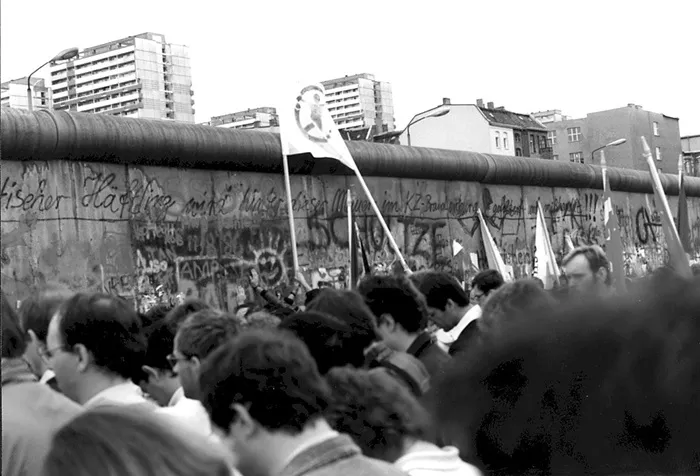June 13th has witnessed a multitude of significant events spanning centuries and continents, each leaving an indelible mark on the annals of history. From pivotal battles and political revolutions to scientific breakthroughs and cultural milestones, this date serves as a testament to the dynamic nature of human civilization. In this comprehensive analysis, we delve into the multifaceted array of events that have unfolded on June 13th throughout history, shedding light on their contexts, implications, and enduring legacies.
The Signing of the Magna Carta (1215)
On June 13, 1215, King John of England affixed his seal to the Magna Carta, a seminal document that laid the foundation for the principles of constitutional law and individual liberties. The Magna Carta, also known as the Great Charter, was the result of negotiations between King John and his barons, who sought to limit the monarch’s powers and protect their own rights.
Although King John later sought to annul the Magna Carta, its principles of due process, trial by jury, and the rule of law endured and became fundamental tenets of English and later Anglo-American jurisprudence. The Magna Carta’s legacy continues to resonate today as a symbol of liberty and the rule of law.
See also: What Happened on May 13 in History?
The Birth of William Butler Yeats (1865)
On June 13, 1865, the renowned Irish poet William Butler Yeats was born in Sandymount, Ireland. Yeats is widely regarded as one of the greatest poets of the 20th century, known for his evocative verse, rich symbolism, and exploration of Irish mythology and folklore. His body of work encompasses themes of love, mysticism, and the passage of time, capturing the essence of the Irish spirit and landscape.
Yeats’ influence extended beyond poetry, as he was also a prominent figure in the Irish literary revival and a key architect of the Abbey Theatre, Ireland’s national theater. His contributions to literature earned him the Nobel Prize in Literature in 1923, making him the first Irishman to receive the prestigious award.
The Berlin Wall Crisis (1961)
On June 13th, 1961, tensions between East and West reached a boiling point during the Berlin Wall Crisis. The crisis was sparked by the construction of the Berlin Wall, a barrier erected by the East German government to stem the tide of defections from East to West Berlin.
The construction of the Berlin Wall served as a physical manifestation of the division between East and West during the Cold War era. It represented not only a barrier to physical movement but also a symbol of ideological conflict and the struggle for freedom. The Berlin Wall Crisis heightened international tensions and underscored the precariousness of the Cold War balance of power.
The Watergate Scandal (1971-1974)
The Watergate Scandal, one of the most infamous political scandals in American history, reached a critical juncture on June 13th, 1971, with the arrest of five burglars at the Democratic National Committee headquarters in the Watergate complex in Washington, D.C. What initially appeared to be a routine burglary quickly escalated into a far-reaching political scandal that would ultimately lead to the resignation of President Richard Nixon.
The Watergate Scandal exposed a web of corruption, abuse of power, and obstruction of justice at the highest levels of government. It triggered a constitutional crisis and raised profound questions about the integrity of American democracy. The fallout from the scandal reshaped American politics and led to reforms aimed at enhancing transparency, accountability, and the rule of law.
The Global War on Terrorism (2001-present)
On June 13th, 2001, just three months before the September 11th terrorist attacks, the United States received a warning from the Central Intelligence Agency (CIA) about the possibility of a terrorist attack by Osama bin Laden’s Al-Qaeda network. The warning highlighted growing concerns about the threat posed by international terrorism and underscored the challenges facing the global community in addressing this evolving security threat.
The September 11th attacks, which occurred later that year, catapulted the world into a new era defined by the Global War on Terrorism. In response to the attacks, the United States launched military operations in Afghanistan and Iraq, aimed at dismantling terrorist networks and combating extremism. The Global War on Terrorism has had far-reaching implications for international security, geopolitics, and civil liberties, shaping the course of the 21st century.
The Election of Pope Francis (2013)
On June 13, 2013, Cardinal Jorge Mario Bergoglio of Argentina was elected as the 266th pope of the Roman Catholic Church, taking the name Pope Francis. His election marked several historic firsts, as he became the first pope from the Americas, the first Jesuit pope, and the first pope to choose the name Francis in honor of St. Francis of Assisi.
Pope Francis’ election was met with widespread acclaim and hope for reform within the Catholic Church. Known for his humility, compassion, and commitment to social justice, he has sought to revitalize the Church’s mission and address pressing global issues such as poverty, inequality, and environmental degradation.
Pope Francis’ pontificate has been characterized by a focus on mercy, dialogue, and inclusivity, as he seeks to build bridges within the Church and with people of all faiths and backgrounds. His leadership has sparked renewed enthusiasm and engagement among Catholics worldwide, shaping the Church’s trajectory for years to come.
Conclusion
June 13th stands as a pivotal date in history, marked by a diverse array of events that have shaped the course of human civilization. From the signing of the Magna Carta to the Berlin Wall Crisis, from the Watergate Scandal to the Global War on Terrorism, the events of this date serve as a reminder of the enduring struggle for freedom, justice, and peace. As we reflect on the significance of June 13th, may we gain a deeper understanding of the complexities of history and the lessons it imparts for the future.

